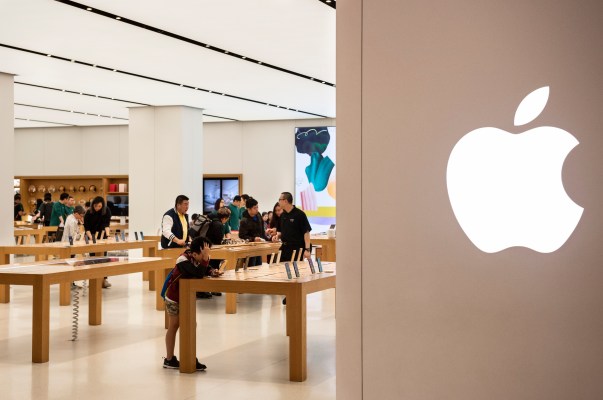From Activision to Amazon, historic union elections are changing the way Americans think about work. Now Apple is the next tech giant to reckon with an employee-focused labor movement.
Calling themselves Fruit Stand Workers United (FSWU), employees at Apple’s Grand Central Terminal store launched a website designed to explain to co-workers why they want to unionize their store.
“Year after year, the cost of living in New York City has not kept pace with our salaries,” reads the FSWU’s mission statement. “In the meantime, Apple has become the most valuable company in the world. Why should its retail workers live in precariousness? »
The collective will be affiliated with Workers United, the same group that has helped more than 20 Starbucks locations form unions since December.
The FSWU requires a minimum of $30 per hour for all workers. Currently, wages range between $17 and $30 an hour, plus Apple stock. They also want better benefits, including increased tuition reimbursement, more vacation time, better retirement options and higher 401(k) match rates. Since the Grand Central store faces unique challenges due to its location, they want to conduct research into the health effects of dust, building materials and noise pollution at this busy site.
“Grand Central is an extraordinary store with unique working conditions that make a union necessary to ensure our team has the best possible standard of living in what has proven to be an extraordinary time with the ongoing COVID-19 pandemic and once in a generation consumer price inflation,” the website reads.
The collective has begun the process of signing the cards, which is a step towards filing a union election with the National Labor Relations Board (NLRB). If at least 30% of workers sign cards saying they want a union, the NLRB will hold an election.
TechCrunch contacted Apple for comment, but did not hear back before publication.
So far no Apple retail store has unionized, but in February the Washington Post reported that at least two stores were backed by major national unions and were prepared to file documents with the NLRB, while that at least six other stores were in the early stages of attempting to unionize. Around the same time, Apple doubled paid sick leave for full-time and part-time workers following reports from The Verge about the struggles of Apple’s frontline workers.
Apple technicians have also participated in campaigns for better conditions, such as the #AppleToo movement, which collects stories from workers who have experienced harassment or discrimination at Apple. Apple Maps program manager Janneke Parrish, organizer of #AppleToo, was fired for “non-compliance” when she deleted personal files from her phone and computer before handing them over to Apple for investigation. She told The New York Times that she felt she was being retaliated against for her organization. Another #AppleToo organizer, software engineer Cher Scarlett voluntarily left Apple and received a settlement after withdrawing a complaint she filed with the NLRB. In that complaint, she alleged that Apple interfered with employees’ organizing efforts.




